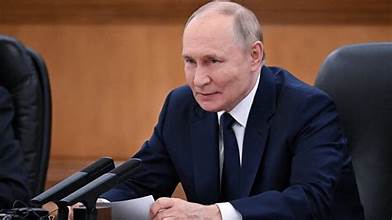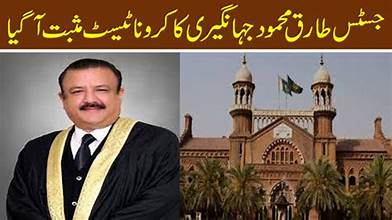In a development that has drawn global attention, Russian President Vladimir Putin extended an offer to former U.S. President Donald Trump of a one-year extension to a key nuclear weapons treaty. The proposal underscored Moscow’s intent to prevent the complete collapse of a longstanding arms control agreement while also testing Washington’s willingness to engage in meaningful dialogue on international security. The announcement carried weight not only because of its immediate implications for global stability but also because of the timing, occurring during a period of heightened geopolitical rivalry and election-year pressures in the United States.
This move marked another chapter in the complicated and often tense relationship between the two world powers, both of which possess the largest nuclear arsenals. As debates over arms control, strategic stability, and future alliances continue, the offer has sparked speculation about motives, potential compromises, and the broader consequences for global peace.
Background: The Role of Nuclear Treaties
Since the Cold War era, nuclear treaties have served as crucial safeguards to prevent escalation and miscalculation. Agreements such as the Strategic Arms Reduction Treaty (START) and its successor, the New START, have imposed verifiable limits on deployed strategic nuclear weapons. These treaties are not merely symbolic; they represent trust-building mechanisms designed to keep catastrophic competition in check.
Without such agreements, the risks of an unchecked nuclear arms race would increase dramatically. As emerging powers modernize their arsenals, the United States and Russia remain under pressure to set an example of restraint. This makes every negotiation and extension offer deeply consequential.
Putin’s Offer to Trump
In his proposal, Putin suggested extending the existing nuclear treaty by one year, thereby granting both sides breathing room to negotiate a more comprehensive and modernized agreement. The one-year extension would maintain transparency and verification procedures, preventing an immediate vacuum that adversaries or third parties could exploit.
The timing of the offer was strategic. With Trump facing domestic challenges and the U.S. deeply polarized, Putin’s move created an opportunity for Russia to project itself as a responsible stakeholder in arms control. At the same time, it subtly shifted the diplomatic burden onto Washington—forcing Trump to either accept the proposal and engage, or reject it and risk being blamed for undermining global security.
The U.S. Response
The Trump administration had long expressed skepticism about multilateral treaties and agreements, preferring bilateral negotiations or renegotiated deals that aligned with its “America First” agenda. Critics argued that this approach weakened global norms and partnerships, while supporters contended it was necessary to protect U.S. interests.
In the case of Putin’s offer, Trump’s team weighed the potential domestic and international implications. Accepting the one-year extension could demonstrate diplomatic pragmatism during a heated election season, while rejecting it might fuel narratives of isolationism. The challenge lay in balancing national security priorities with political optics.

Strategic Motives Behind Putin’s Offer
Putin’s offer was not made in a vacuum; it carried deliberate strategic messaging. Several key motives can be identified:
- Avoiding Treaty Collapse: Russia, like the United States, benefits from predictability in nuclear relations. A treaty’s collapse would increase uncertainty and potentially spark costly arms races.
- Global Image Management: By positioning himself as the initiator of compromise, Putin reinforced Russia’s image as a rational actor in global security, contrasting with portrayals of unpredictability in U.S. foreign policy.
- Testing U.S. Commitment: The offer allowed Russia to assess how far Washington was willing to go in preserving arms control, which could shape Moscow’s broader geopolitical calculations.
- Election-Year Leverage: The timing inevitably raised questions about how the proposal might influence American political debates and narratives surrounding Trump’s foreign policy.
Global Reactions
The international community responded with a mix of cautious optimism and skepticism. NATO allies and European leaders welcomed the possibility of keeping arms control frameworks intact, viewing them as essential for regional and global security. At the same time, many questioned whether a mere one-year extension would provide sufficient stability, arguing instead for long-term commitments.
China, though not directly part of the treaty, observed developments closely. As a rising nuclear power, Beijing has resisted joining similar arms control arrangements, preferring flexibility. Yet, the outcome of U.S.-Russia negotiations inevitably impacts China’s strategic posture.
Trump Offered One-Year Nuclear Treaty Extension by Putin
Challenges to a Lasting Agreement
While a one-year extension would buy time, it does not resolve deeper issues. The landscape of global security has evolved since the original treaty was signed. Cyber warfare, advanced missile systems, hypersonic weapons, and new nuclear technologies all complicate traditional arms control frameworks.
Moreover, political mistrust between Washington and Moscow remains high. Accusations of election interference, sanctions, and conflicts in regions such as Ukraine and Syria have strained dialogue. Without genuine commitment from both sides, even a temporary extension risks becoming a symbolic gesture rather than a stepping stone to lasting progress.

Implications for Global Security
If accepted, the one-year extension would represent a pause rather than a resolution. Yet even pauses matter in diplomacy. They prevent immediate escalation and maintain transparency mechanisms, which are critical to reducing risks of miscalculation.
For the broader international community, the offer highlights both the fragility and necessity of arms control. In an era of rising nationalism and fractured alliances, maintaining even temporary cooperation becomes a victory for stability.
Conversely, failure to reach an agreement could destabilize global security dynamics, encouraging arms build-ups not only between the U.S. and Russia but also among other powers seeking to hedge against uncertainty.
Trump, Putin, and the Legacy Question
For Trump, the decision carried potential legacy implications. Arms control has historically been a domain where U.S. presidents make lasting marks. A deal could have been presented as a foreign policy achievement, demonstrating leadership in preventing nuclear proliferation. For Putin, the offer bolstered his narrative as a global power broker willing to engage even when relations were strained.
Ultimately, the success or failure of the proposal would not only affect the immediate balance of power but also influence how both leaders were remembered in the context of global security.
Conclusion
Putin’s offer of a one-year extension to Trump was more than a technical diplomatic move—it was a calculated maneuver with global consequences. At stake was not only the future of a treaty but also the credibility of arms control as a cornerstone of international stability.
While the short extension could be seen as a temporary fix, it underscored the urgent need for updated, comprehensive agreements that reflect today’s realities. Whether through bilateral negotiations or broader international frameworks, the responsibility lies with global leaders to rise above political rivalries and prioritize collective security.
In the end, the world watched closely as two of the most powerful nuclear states weighed their choices—choices that could either sustain hope for arms control or usher in a more dangerous era of competition.



